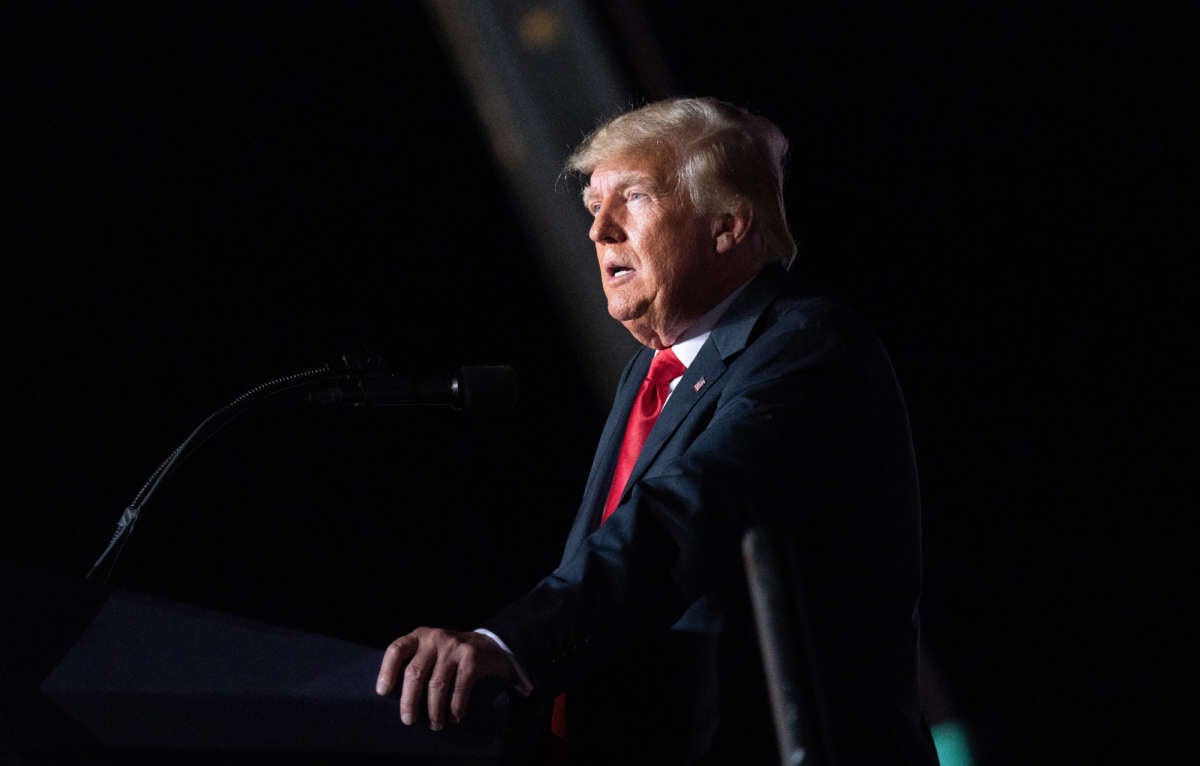Former President Donald Trump is preparing to sue the Biden White House over its plans to release records from his administration to a select committee in Congress. The records pertain to the January 6 attack on the United States Capitol building, which was carried out by a mob of Trump loyalists upset with the outcome of the 2020 presidential election.
According to reporting from The Guardian, which cites a source familiar with Trump’s plans, the former president is planning to say that he has the right to stop those records from reaching the January 6 commission because it would violate his executive privilege if they were able to view them.
Trump is also expecting that four former aides from his administration who were subpoenaed last week — Dan Scavino, who helped run Trump’s social media when he was president; Steve Bannon, a right-wing provocateur and former chief strategist to Trump; Kash Patel, who served as the acting chief of staff for the defense secretary on January 6; and Trump’s former chief of staff Mark Meadows — will also refuse to provide documents to the commission or testify before them in October, The Guardian reported.
Last week, in a statement regarding his former aides being subpoenaed, Trump said he would “fight” the action, citing “executive privilege and other grounds” to do so. However, experts have noted that Trump’s efforts to block the January 6 commission from obtaining his records will likely fail.
If Trump does indeed sue to prevent those records from being seen, the issue will likely be settled in the courts, where constitutional questions over whether a former president can invoke executive privilege — and to what extent they can do so — may be redefined. The Supreme Court, which underwent a drastic conservative shift after Trump appointed three justices in a single term, may also weigh in on the matter.
Current law doesn’t give Trump much ground to stand on when it comes to asserting executive privilege, a right conferred to presidents that allows them to discuss ideas with aides without fear of scrutiny by other branches of government. The Presidential Records Act allows former presidents to evaluate records from their time in office and to formally object to them being shared publicly, citing their executive privilege rights. However, the ultimate decision on whether such records can be released rests with the current president, who can override their predecessor’s objections.
A former president can still sue to stop those records from being released if they disagree with the current president’s decision. But past lawsuits related to the release of information that is deemed relevant to the public interest — as the January 6 Capitol breach likely will be — have generally, though not always, sided with those seeking to make such information public record.
Our most important fundraising appeal of the year
December is the most critical time of year for Truthout, because our nonprofit news is funded almost entirely by individual donations from readers like you. So before you navigate away, we ask that you take just a second to support Truthout with a tax-deductible donation.
This year is a little different. We are up against a far-reaching, wide-scale attack on press freedom coming from the Trump administration. 2025 was a year of frightening censorship, news industry corporate consolidation, and worsening financial conditions for progressive nonprofits across the board.
We can only resist Trump’s agenda by cultivating a strong base of support. The right-wing mediasphere is funded comfortably by billionaire owners and venture capitalist philanthropists. At Truthout, we have you.
We’ve set an ambitious target for our year-end campaign — a goal of $250,000 to keep up our fight against authoritarianism in 2026. Please take a meaningful action in this fight: make a one-time or monthly donation to Truthout before December 31. If you have the means, please dig deep.
